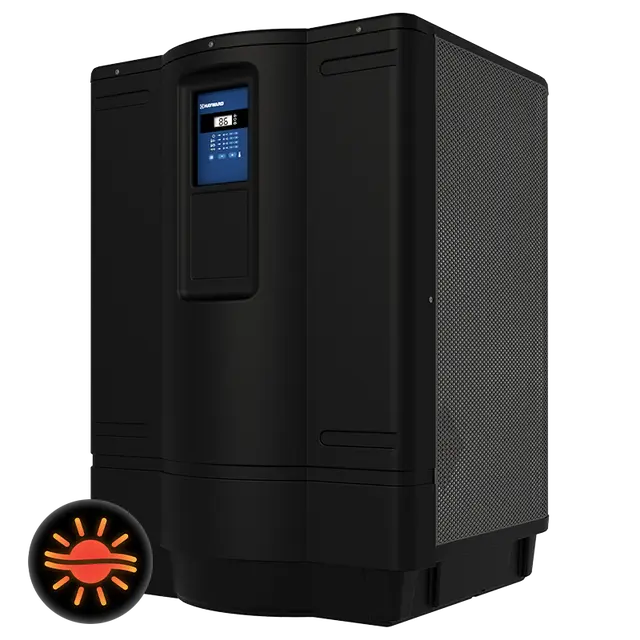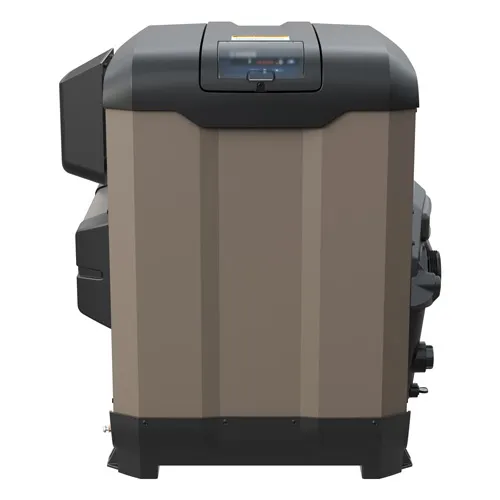Need a swimming pool heater to enjoy warm swims year-round? This article covers the top 4 options, explaining how they work, their benefits, and which might be best for your needs.
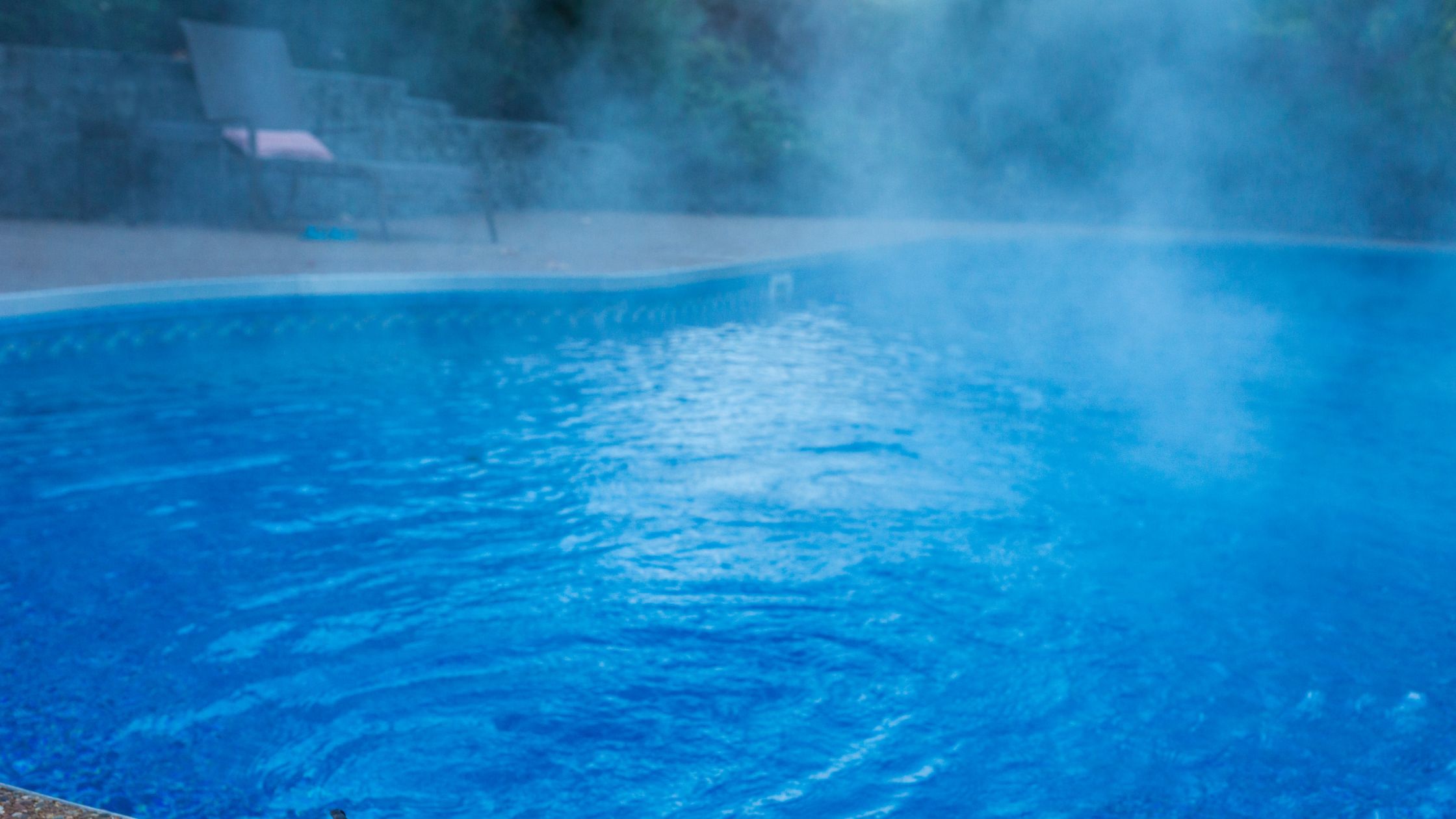
Key Takeaways
- Heat pump pool heaters are energy-efficient and conserve resources, but their effectiveness drops in colder temperatures.
- Gas heaters heat pools rapidly but come with higher long-term operational costs compared to other options.
- Solar pool heaters are eco-friendly and can lead to significant savings, especially when combined with solar covers.
Heat Pump Pool Heaters
Heat pump pool heaters are a popular choice among pool owners for efficient heating. Unlike traditional heaters, these units transfer heat from the outside air into the pool water, rather than consuming gas or propane. Heat pumps are an effective solution for maintaining optimal pool temperatures.
This process not only heats the swimming pool water efficiently but also conserves energy, making it an economical option for maintaining warm water in a pool.
How They Work
Heat pump pool heaters operate by moving outdoor heat into the pool water using a small amount of energy. Warm air is extracted from the atmosphere, and a low-energy process is then used to heat the pool water. The key components include a fan, evaporator coil, refrigerant, compressor, and condenser.
A fan draws the outdoor air over the evaporator coil containing refrigerant, which absorbs heat and transforms from liquid to gas
Benefits and Drawbacks
Compared to traditional gas, propane, or electric heaters, heat pump pool heaters offer significant energy savings. They can save around $400 annually when set at 85 degrees.
However, they lose efficiency in temperatures below 50 degrees Fahrenheit, which can be a drawback in colder climates.
Choosing the Right Model
Choosing the right heat pump pool heater depends on factors like pool size, climate, and desired heating speed. Proper sizing considers the pool surface area and the temperature difference between the pool and air.
Gas Pool Heaters
How They Operate
Gas heaters function by burning natural gas or propane, generating heat through combustion. This heat is transferred to the pool water via heat exchangers, efficiently warming the circulating water. Especially for indoor units, proper installation requires venting to prevent harmful gas buildup.
Advantages and Disadvantages
Gas pool heaters offer rapid heating and are affordable to install. However, they come with high operating costs and a shorter lifespan compared to other heaters. The operational costs can be up to five times higher than electric heaters, impacting long-term investment.
Installation and Maintenance
Gas heaters use a burner to circulate and heat pool water through heated metal heat exchangers. Annual servicing ensures safety and performance, leading to long-term savings and improved efficiency.
Solar Pool Heaters
Solar pool heaters use solar panels to harness sunlight, providing an eco-friendly heating option. This sustainable method reduces energy costs and benefits the environment.
Types of Solar Heaters
There are several types of solar heaters, including unglazed, glazed, and vacuum tube collectors. Unglazed collectors are lightweight and efficient in warm weather.
Glazed collectors work well in cooler conditions due to their insulation, while vacuum tube collectors are the most efficient and can function in extreme cold.
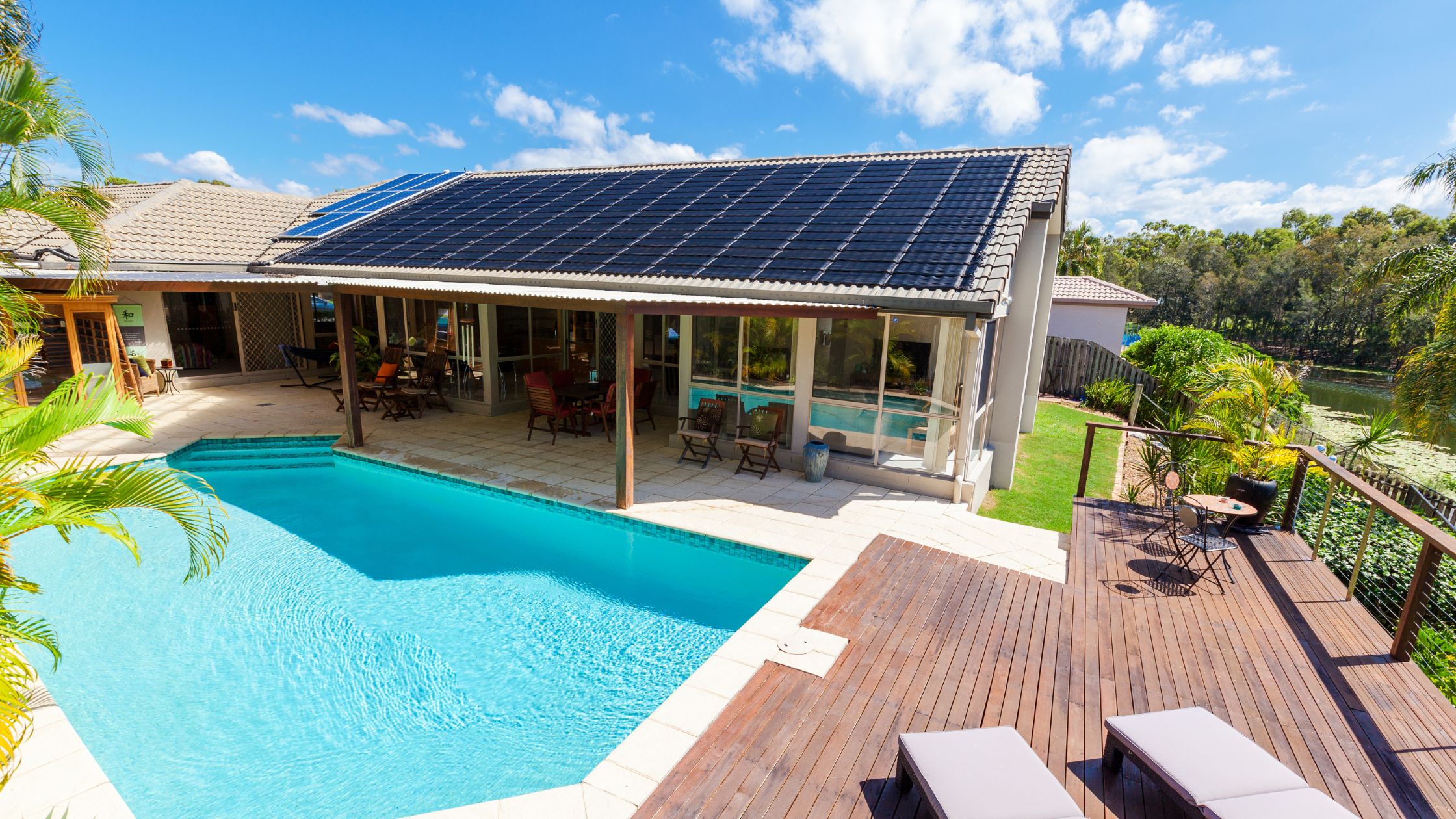
Installation Considerations
Positioning solar panels correctly maximizes sunlight exposure. Ideally, you want to orient the panels to face true south with a tilt angle based on latitude for optimal performance. A solar panel company can help you find the best orientation for your property.
Efficiency and Savings
Electric Resistance Heaters
Electric resistance heaters, ideal for smaller pools or spas, operate by using electrical currents to generate heat. They are user-friendly but have higher operating costs due to substantial energy consumption.
How They Function
Electric resistance heaters generate heat by transferring electric currents through a heating element that warms the surrounding water. This process is similar to how an electric stove operates, utilizing metal coils that heat up when an electrical current passes through them.
Pros and Cons
These heaters are easy to install and operate, providing a convenient option for pool heating. However, they can lead to significantly higher electricity costs, making them more suitable for smaller pools or spas.
Cost Implications
Electric resistance heaters come with higher initial costs for purchase and installation. Ongoing electricity expenses impact the total cost of ownership, with each degree increase in thermostat setting resulting in additional operating costs.
Hybrid Pool Heaters
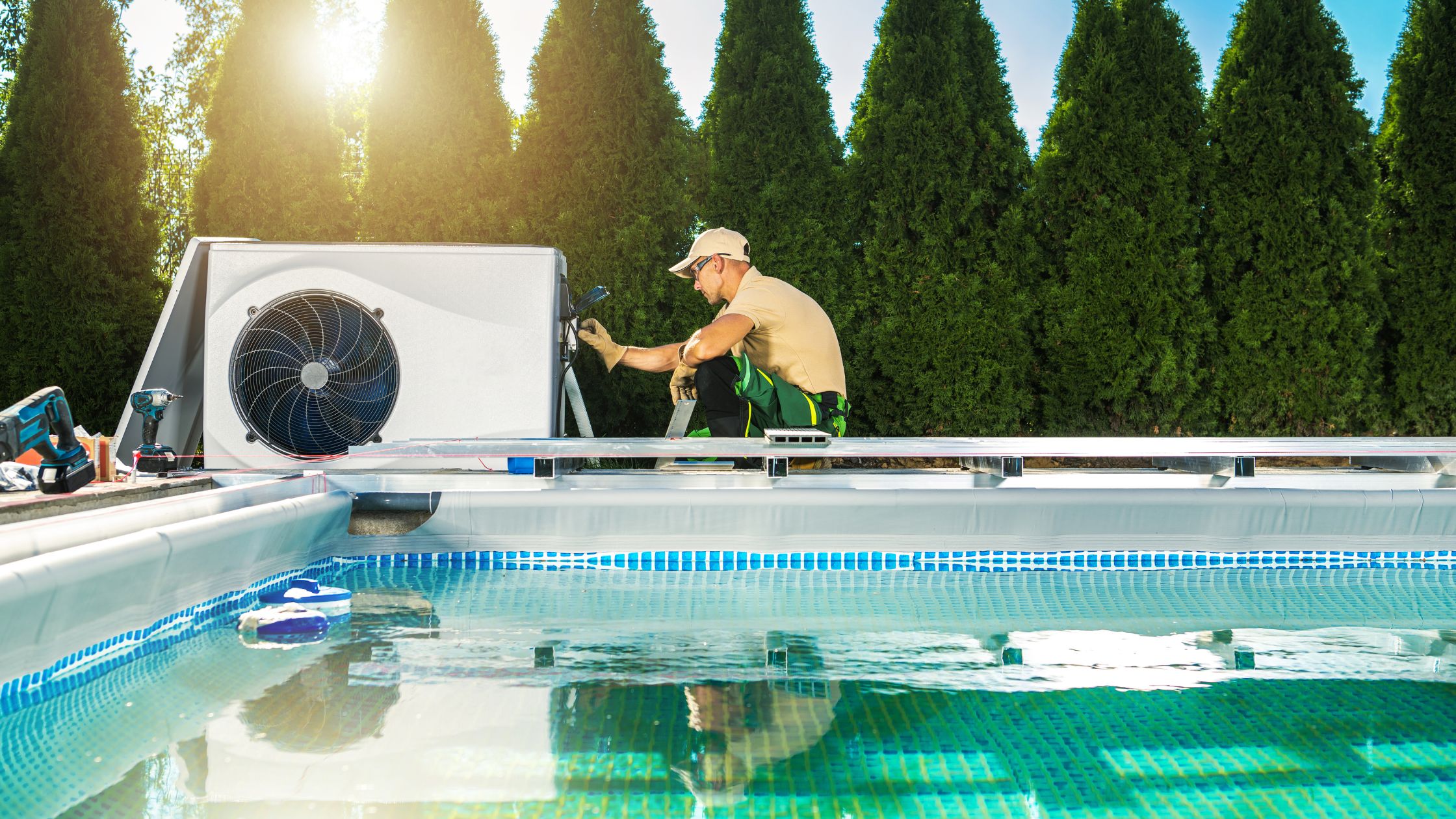
Hybrid pool heaters combine heat pump and gas heater technologies to optimize performance across various weather conditions. This combination ensures efficient heating in any climate.
Working Mechanism
Hybrid heaters switch between heat pump and gas modes depending on temperature and demand. In mild temperatures, the heat pump mode heats the pool water efficiently.
In colder weather, the heating system switches to gas mode to maintain a consistent pool temperature.
Performance and Efficiency
By switching between modes, these heaters offer efficient heating across different climates, ensuring optimal performance. They are particularly beneficial in regions with fluctuating temperatures, providing year-round heating solutions.
Ideal Use Cases
Hybrid pool heaters are ideal for regions with significant temperature fluctuations, ensuring consistent heating performance throughout the year. They offer comfort and efficiency, allowing for year-round swimming.
Enhancing Pool Heater Efficiency
Enhancing your pool heater’s efficiency saves energy and reduces heating costs. Insulation techniques and regular maintenance are key ways to enhance efficiency.
Insulation Techniques
Liquid solar covers significantly improve heat retention and reduce evaporation. They’re one of the easiest and most cost efficient options available!
Windproof Enclosures
Windproof enclosures reduce heat loss due to wind, enhancing the efficiency of pool heaters.
Fencing or vegetation can minimize wind exposure and heat loss around the pool area.
Regular Maintenance
Routine maintenance prevents issues such as corrosion, especially in outdoor gas heater models. Annual servicing improves efficiency and prolongs the lifespan of pool heaters.
Wrapping Up – Find the Right Heater for Your Pool
Choosing the right pool heater depends on various factors, including pool size, climate, and budget. Heat pump pool heaters offer efficiency and long-term savings, while gas heaters provide rapid heating despite higher operating costs. Solar heaters are eco-friendly and cost-effective in the long run, and electric resistance heaters are suitable for smaller pools. Hybrid heaters offer the best of both worlds, adapting to temperature fluctuations.
No matter which option you choose, ensuring proper installation and maintenance can maximize efficiency and reduce costs. By considering these factors, you can enjoy a warm pool throughout the winter, making every dive a pleasure.

